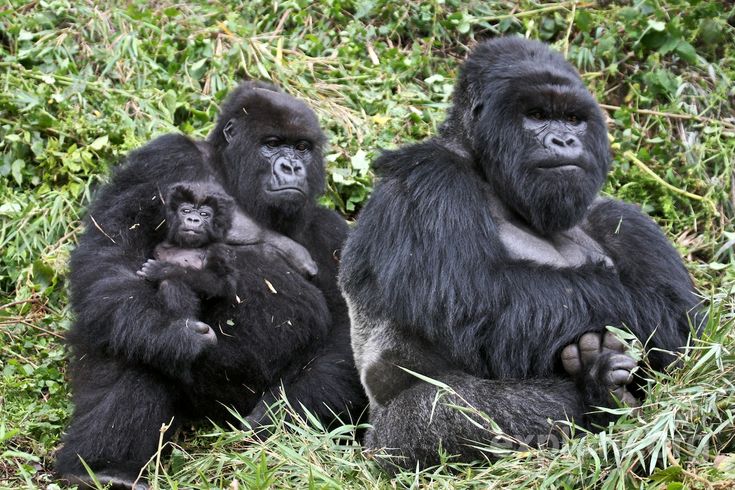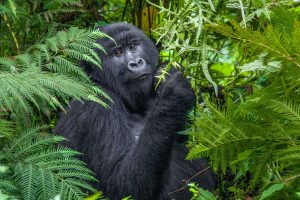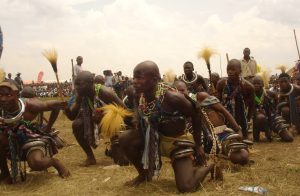What is a gorilla permit?
A gorilla permit authorizes tourists to trek and see mountain gorillas in their natural habitat. Wildlife authorities in Uganda, Rwanda, and the Democratic Republic of Congo issue these permits. A permit grants access to one habituated gorilla family and includes one hour of direct observation. Authorities regulate visitor numbers through permits to protect the gorillas and support conservation efforts. Frequently Asked Questions About Gorilla Permits
Why do you need a gorilla permit?
You need a gorilla permit because trekking without one is illegal. Authorities protect mountain gorillas by controlling access to their habitat. Permits limit daily visitor numbers, reduce stress on gorillas, and minimize disease transmission. Revenue from permits funds conservation programs and supports local communities. Without a permit, you cannot legally enter trekking areas.
How much does a gorilla permit cost?
The price of a gorilla permit varies by country. In Uganda, a permit costs USD 800 for foreign non-residents, USD 800 for foreign residents, and UGX 250,000 for East African citizens. In Rwanda, a permit costs USD 1,500 for all international tourists. In the Democratic Republic of Congo, a permit averages USD 400. Authorities may adjust these rates, so travelers must confirm current prices before booking. Frequently Asked Questions About Gorilla Permits
Where can you buy gorilla permits?
You can buy gorilla permits directly from official wildlife authorities. In Uganda, the Uganda Wildlife Authority (UWA) sells permits. In Rwanda, the Rwanda Development Board (RDB) manages sales. In Congo, the Institut Congolais pour la Conservation de la Nature (ICCN) issues permits. Licensed tour operators and travel agencies also purchase permits on behalf of tourists, often as part of full safari packages.
How far in advance should you book a gorilla permit?
You should book your gorilla permit at least 3 to 6 months in advance. Trekking spots remain limited, and demand stays high, especially during peak months such as June, July, August, December, and January. Early booking secures availability and provides enough time to arrange transport, accommodation, and other safari logistics.
How many gorilla permits are available each day?
Authorities limit the number of permits daily to protect gorillas. Uganda issues around 160 permits per day for its more than 20 habituated gorilla families. Rwanda provides about 96 permits daily for Volcanoes National Park. Congo issues fewer permits because it has fewer habituated groups. These limits reduce disturbance and ensure sustainable gorilla tourism.
Are gorilla permits refundable?
Authorities rarely refund gorilla permits. In some cases, such as illness, political instability, or park closures, partial refunds may apply. Policies vary by country, and conditions remain strict. Tourists should confirm refund terms before purchasing permits. Tour operators can help process refund requests, but approval depends on official rules.
Can you transfer a gorilla permit to another person?
You usually cannot transfer a gorilla permit because authorities issue them under the traveler’s name. Rangers verify identity before treks begin. However, in limited cases, authorities may allow name changes if you request them in advance. Tour operators can assist with such requests, but approval is not guaranteed.
What does a gorilla permit include?
A gorilla permit covers park entry, ranger guide services, and one hour with gorillas. Rangers escort and protect tourists throughout the trek. The permit does not include transport, meals, accommodation, or porter services. Travelers should budget for these extra costs.
Does a gorilla permit cover park entry fees?
Yes. A gorilla permit includes the national park entry fee. Once you hold a permit, you do not need to pay a separate entry charge. The permit serves both as a trekking authorization and an entry ticket.
How long does a gorilla trek last with a permit?
A gorilla permit allows you to spend one full hour with gorillas once you locate them. The trek itself can last between 2 and 8 hours depending on gorilla movement. Rangers track the group and guide you through forests, hills, and valleys until you find them.
What rules must you follow with a gorilla permit?
You must follow strict rules during gorilla treks. You must stay at least 7 meters away from gorillas. You must avoid flash photography and keep your voice low. You cannot eat, drink, or smoke near gorillas. Authorities prevent tourists with contagious illnesses from trekking. These rules protect gorillas and tourists alike.
Are gorilla permits required in all trekking countries?
Yes. Uganda, Rwanda, and the Democratic Republic of Congo all require permits. You cannot trek gorillas in any of these countries without one. Authorities use the permit system to enforce protection across all mountain gorilla habitats.
What are the differences between permits in Uganda, Rwanda, and Congo?
The key differences are cost and accessibility. Rwanda charges USD 1,500 per permit, but Volcanoes National Park lies close to Kigali, making access easy. Uganda charges USD 800 per permit and offers trekking in Bwindi Impenetrable National Park and Mgahinga Gorilla National Park. Congo charges about USD 400, the cheapest option, but travelers face accessibility and security challenges.
Can you get discounts on gorilla permits?
Yes, in some cases. Uganda sometimes offers discounts during the low season in April, May, and November. Rwanda occasionally provides reduced rates for East African residents or African Union citizens. Congo also introduces promotional rates occasionally. Tourists should check current offers before confirming bookings.
Are children allowed to use gorilla permits?
No. Children under 15 years old cannot trek gorillas in Uganda, Rwanda, or Congo. Authorities enforce this restriction to reduce risks. Children may struggle with the trek and increase the risk of disease transmission to gorillas.
Do gorilla permits sell out quickly?
Yes. Gorilla permits sell out quickly during peak seasons. Tourists should book months in advance to secure a spot. June, July, August, December, and January remain the busiest months, with demand outpacing supply.
Can tour operators help secure gorilla permits?
Yes. Licensed tour operators regularly buy permits for clients. They also arrange transport, accommodation, and guided treks. Working with an operator saves time and guarantees proper coordination. Operators often track real-time availability and secure spots faster than individual travelers.
What happens if you lose your gorilla permit?
If you lose your gorilla permit, you must report it immediately to the issuing authority or your tour operator. Authorities may issue a replacement if you provide proof of payment. To avoid disruption, you should keep both printed and digital copies of your permit. Frequently Asked Questions About Gorilla Permits
Why are gorilla permits expensive?
Gorilla permits cost a lot because they support conservation and community projects. Authorities use revenue to fund ranger patrols, habitat protection, and anti-poaching operations. Local communities also benefit through schools, clinics, and infrastructure projects. High permit costs limit visitor numbers and reduce pressure on gorillas. Frequently Asked Questions About Gorilla Permits




